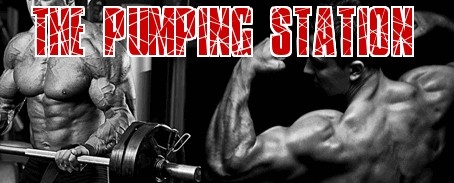Do You Really Need Bodybuilding Supplements
Nutritional supplements are a hallowed part of the scientifically calculated diets that nourish world-class athletes in Russia and other Eastern European countries. The policy stemmed from the Soviet sports scientists who had determined that even the best, most balanced diets don't meet the extraordinary nutritional demands of hard-training athletes. The great success of Eastern European athletes is in part a tribute to their supplementation program. But while the Russians say nyet to the question of whether a "balanced diet" can provide sufficient fuel for a high-performance body, conservative Yankee nutritionists say yes. They believe that physically active people can get all their nutrient requirements from stepped-up intake of calories.
In the face of American eating habits and the questionable nutritional contents of American foods, such thinking might be unrealistic, however. Studies done with both physically active people and athletes alike have shown them to be short on many key nutrients despite their increased food intake.
For example, a Syracuse University study some years ago found numerous nutritional deficiencies among athletes, even though some consumed 14,000 calories per day - as much as most men need to eat in a week.
"It's not just a question of needing more calories for fuel to maintain a higher activity level, but of maintaining the body's systems at the upper limits of performance," explained Jerzy Meduski, MD a leading authority on nutritional biochemistry. "Exhaustive physical work puts a tremendous burden on the immune, recovery and other systems of the body. The ratio of special nutrients - those directly related to exercise, endurance, muscle breakdown, reconstruction and immunity -- to total caloric nutrients is significantly changed. There's an increased need for certain vitamins, minerals, fatty acids and amino acids. Merely eating more doesn't supply these specific substances."
Nutritional Robbery:
The infant science of nutritional biochemistry - which at this stage offers us only imperfect knowledge - is complicated even more by the unique stresses that accompany physical training. Some of the factors to consider are:
- Two-thirds of the food we eat is processed, resulting in diminished vitamin and mineral contents. Canning, cooking, storage, freezing and preparation all cause additional nutrient loss.
- Sugar and highly processed refined carbohydrates comprise an estimated 60 percent of the average American diet. these are "empty" foods low in nutrition, high in calories - that force your body to "borrow" nutrient reserves in order to digest the junk.
- Intensive farming and long-term use of chemical fertilizers and pesticides have caused serious drops in the nutrient contents of many agricultural crops.
- Fast foods, rapidly becoming symbolic of the modern American diet, are notoriously deficient in vitamin A, several of the B vitamins, iron and copper.
- Alcohol destroys the vitamin-B complex group, vitamins A and C, as well as zinc, magnesium and calcium. It stimulates the kidneys to excrete more fluid than you take in, which can create a relative state of dehydration that's dangerous for someone who sweats buckets.
- Overcooking of meat and vegetables can oxidize and destroy heat-susceptible vitamins, such as the B group, C and E. Boiling vegetables leaches out the water-soluble B group and C, as well as many minerals. Steaming is preferable. Some vitamins, such as B6, can be destroyed by microwaving.
- Smoking causes depletion of vitamin C to the tune of 25 to 100 milligrams per cigarette.
- Most adult Americans make frequent use of painkillers, antibiotics, anti-inflammatory and tranquilizer drugs. To some degree, all interfere with basic metabolic processes. Aspirin, perhaps the least toxic painkiller, speeds up the loss through urination of calcium, potassium, the B vitamins and vitamin C. Long-term use of antibiotics causes immune-system suppression and robs the body of potassium, calcium, iron and Vitamins B12.
- Marijuana use depletes vitamins C and suppresses the immune system. Herpes-infected marijuana users suffer more severe and more frequent outbreaks
- Chemical and emotional stress increase the body's need for certain vitamins, such B5, B6 and C, while air pollution increases the need for vitamin E.
- Injuries require the body to use considerable amounts of protein, vitamins A and C and zinc in the healing process.
Supplements:
If you believe you should supplement your diet, visit a performance nutritionist to discuss your needs. The thousands of chemical reactions that must take place to create energy and make repairs are regulated in a very precise way. Vitamins, minerals and proteins work closely together to maintain this control. Because the metabolic interactions that occur when your body digests and uses nutrients are complex and interdependent, helter-skelter supplementation with megadoses of single components might have unpleasant - even unhealthy - results. The key is to make nutrition work for you by adopting a scientific approach. That way you'll get the most out of your tough hours of training.
Physically active people eat and use supplements for ten central purposes that go beyond mere survival or gustatory indulgence:
1. To get stronger
2. To gain muscle mass
3. To lose fat
4. For anaerobic energy
5. For aerobic energy
6. To reduce pain and inflammation
7. For more rapid tissue healing
8. For faster post-exercise recovery
9. For better mental focus or arousal
10. For general health
To learn more about our line of quality supplements, please go to Bodybuilding Supplements.
Click Here to Sign Up for Your Free Bodybuilding Magazine Subscription

